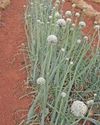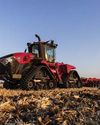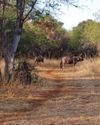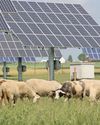
Over the years, South Africa has established a reputation for supplying fruit to local and international markets. Farmers have adjusted their practices to comply with strict global phytosanitary regulations amid challenges like adverse weather conditions, water scarcity, and load-shedding, with an ongoing emphasis on year-round pest and disease control.
To reduce the risks associated with weather conditions like hail, sunburn and wind damage in certain production areas, the area under nets in South Africa is expanding rapidly.
Integrated pest management (IPM) programmes, which use a mix of chemical, biological, and cultural controls alongside habitat manipulation, have been widely adopted in the fruit industry for long-term pest management and damage prevention.
By installing nets, farmers are creating a different microclimate for their orchards, which may require an adaptation of their pest and disease control management practices, says André Labuschagne, campaign lead for potatoes and subtropical fruit at Syngenta. Failure to adapt, he warns, can result in a loss of all the benefits associated with crops under protection.
OPEN ORCHARDS VERSUS NETTED AREAS
Production in open fields allows for full sunlight exposure that can help reduce numbers of certain pests, as some insects are less active or unable to survive in intense sunlight. Open fields also allow natural predators like birds, ladybugs, spiders, and parasitoids, such as wasps, to control pests. These beneficial organisms thrive in open environments.
However, there are also some challenges associated with production in open orchards and fields. Some crops are more susceptible to pests in open fields due to lack of protection. Although weeds and other plants in the vicinity can harbour beneficial insects, they also serve as hosts for pests and compete with crops for resources.
Bu hikaye Farmer's Weekly dergisinin August 02, 2024 sayısından alınmıştır.
Start your 7-day Magzter GOLD free trial to access thousands of curated premium stories, and 9,000+ magazines and newspapers.
Already a subscriber ? Giriş Yap
Bu hikaye Farmer's Weekly dergisinin August 02, 2024 sayısından alınmıştır.
Start your 7-day Magzter GOLD free trial to access thousands of curated premium stories, and 9,000+ magazines and newspapers.
Already a subscriber? Giriş Yap

When short-term rentals make sense
Bianca Smit, national operations manager at CFAO Equipment SA, outlines factors to consider when choosing a rental equipment partner.

The timing of onion sowing is critical
Each onion variety has a different resistance to bolting, thus growers need experience and knowledge to guide them,

Understanding cannabis and hemp regulations in South Africa
South Africa's cannabis and hemp regulations remain a topic of debate and uncertainty, particularly when it comes to commercial use and small-scale production. Cannabis experts Shaad Vayej and Trenton Birch spoke to Octavia Avesca Spandiel about the challenges that small-scale cannabis and hemp farmers face.

European seed's influence on the US cannabis market
The expansion of European cannabis seed onto the US market is not just about economic growth; it’s also about enriching the landscape of US cannabis with diversity, innovation and education,

'It's important to get the right tool for the job'
The adoption of technology is crucial to sustaining efficiency gains and beating the cost-price squeeze in the agriculture sector.

A brilliant bushveld break between Bela-Bela and Modimolle
The distinctive touch, diligence, and 24/7 customer care are just a few of the reasons you should visit four-star Tourism Council-graded Pumula Game Farm,

John Deere: elevating performance and efficiency in modern farming
In the fast-paced world of farming, the right tools make all the difference.

The naval disaster Winston Churchill tried to hide
Three British warships were sunk by German naval gunfire on a dark day early in World War II, but the heroes who fought back received only muted recognition, possibly to avoid bad publicity,

Breaking down the principles of regenerative farming
Jean Hugo, a post-graduate student at the Tshwane University of Technology, and Leon Hugo, author on environmental matters and former professor of geography at the University of Pretoria, write about the importance of regenerative agriculture for small-scale farmers, and the challenges related to making the shift.

Ectoparasite control: more tips for livestock farmers
To reduce the mayhem that uncontrolled ectoparasites can create for communal farmers, it’s best to adopt a holistic approach in conjunction with veterinary remedies,